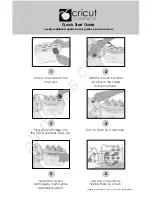
29
A telescope is an instrument that collects and focuses light. The nature of the optical design determines how the light is focused.
Some telescopes, known as refractors, use lenses. Other telescopes, known as reflectors, use mirrors.
A Newtonian reflector
uses a single concave mirror as its primary. Light enters the tube traveling to the mirror at the back end. There light
is bent forward in the tube to a single point, its focal point. Since putting your head in front of the telescope to look
at the image with an eyepiece would keep the reflector from working, a flat mirror called a
diagonal
intercepts the
light and points it out the side of the tube at right angles to the tube. The eyepiece is placed there for easy viewing.
Newtonian Reflector telescopes replace heavy lenses with mirrors to collect and focus the light, providing much
more light-gathering power for the dollar. Because the light path is intercepted and reflected out to the side, you can
have focal lengths up to 1000mm and still enjoy a telescope that is relatively compact and portable. A Newtonian
Reflector telescope offers such impressive light-gathering characteristics you can take a serious interest in deep
space astronomy even on a modest budget. Newtonian Reflector telescopes do require more care and maintenance
because the primary mirror is exposed to air and dust. However, this small drawback does not hamper this type of
telescope’s popularity with those who want an economical telescope that can still resolve faint, distant objects.
I
I
m
m
a
a
g
g
e
e
O
O
r
r
i
i
e
e
n
n
t
t
a
a
t
t
i
i
o
o
n
n
Newtonian reflectors produce a right-side-up image but the image will appear rotated based on the location of the
eyepiece holder in relation to the ground. Newtonian reflectors are best for astronomical use where right-side-up
does not matter.
Figure 4-
1
A
A
c
c
u
u
t
t
a
a
w
w
a
a
y
y
v
v
i
i
e
e
w
w
o
o
f
f
t
t
h
h
e
e
l
l
i
i
g
g
h
h
t
t
p
p
a
a
t
t
h
h
o
o
f
f
t
t
h
h
e
e
N
N
e
e
w
w
t
t
o
o
n
n
i
i
a
a
n
n
o
o
p
p
t
t
i
i
c
c
a
a
l
l
d
d
e
e
s
s
i
i
g
g
n
n
Summary of Contents for C10-NGT
Page 62: ...62 APPENDIX E MAPS OF TIME ZONES...
Page 63: ...63...
Page 64: ...64...
Page 65: ...65...
Page 66: ...66...
Page 67: ...67...
Page 68: ...68...
Page 69: ...69 3...
















































